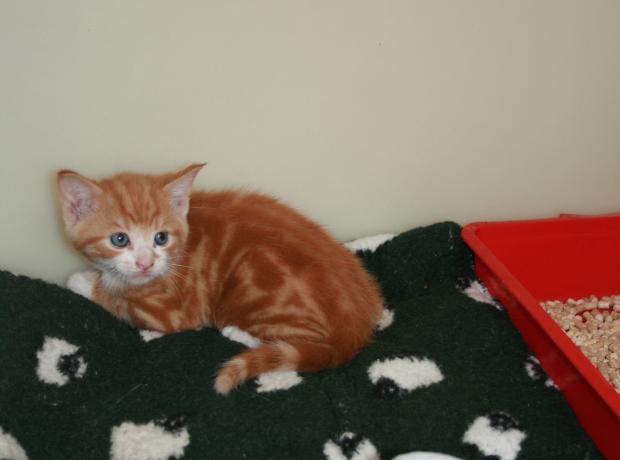Links to vets in Guernsey
Local useful links
Website donated by:

With the latest news of an outbreak of Feline infectious enteritis in Guernsey the GSPCA would like to ensure owners of all types of pets are mindful of getting their pets vaccinated.
Feline infectious enteritis or panleukopenia virus has a special affinity for attacking white blood cells. The reduction of circulating white cells (leukopenia) gives the disease its name. Signs of acute illness appear two to ten days after exposure. Early signs include loss of appetite, severe apathy, and fever up to 105°F (40.5°C). The cat often vomits repeatedly and brings up frothy, yellow-stained bile. The cat may be seen crouching in pain, his head hanging a few inches over the surface of the water bowl. If he is able to drink, he immediately vomits. With pain in the abdomen, the cat cries plaintively.
Diarrhea may appear early in the course of the disease, but frequently comes on later. The stools are yellow or blood-streaked. In young kittens (and some older cats), the onset can be so sudden that death occurs before the owner realizes the cat is ill. It may seem as if the cat was poisoned.
If your cat displays any of these signs the GSPCA would urge you to contact your vet. If you see a sick or ill stray cat then please call the GSPCA on 01481 257261
General Vaccination Advice for Pet Owners
Make sure you protect your pets and keep them safe by keeping up to date with their vaccinations.
In the past many animals became severely ill because of diseases which, thanks to vaccination, are now rarely seen. Although these diseases are now less common, they have not been completely eradicated.
If the number of pets protected by vaccines drops our animal companions could be at risk from an outbreak of infectious diseases, some of which can be transmitted to humans.
Protect your pet by ensuring they receive regular vaccinations.
When puppies and kittens are born they are usually protected from infections by their mother’s milk, providing she has been regularly vaccinated. However, this protection only lasts a few weeks so they need regular vaccinations from an early age.
Puppies are typically vaccinated at eight and 10 weeks, kittens at nine and 12 weeks, with an initial course of two injections. Rabbits can be vaccinated from six weeks of age.
Your young pet should then be given a booster 12 months after their first vaccination.
Older pets need protecting too, as their immunity can decline. Speak to your vet as the regularity of your companions vaccinations can vary depending on the diseases prevalent in your area.
Vaccines for dogs, cats and rabbits protect against many different infectious diseases.
Dogs should be routinely vaccinated against:
If your dog will be spending some time in kennels they may also be given a kennel cough vaccine. This vaccine is usually given intra-nasally (into a nostril) and protects against parainfluenza virus and bordetella bronchiseptica.
Dogs travelling abroad may require a rabies vaccination.
Cats should be routinely vaccinated against:
*Current recommendations are that only at risk cats are given vaccine against feline leukemia virus. Speak to your vet for more details.
Rabbits should be routinely vaccinated against:
In Guernsey the wild population of rabbits are often seen with myxomatosis and it is advisable if you have a rabbit or thinking of getting one to speak to your vet.



Post new comment